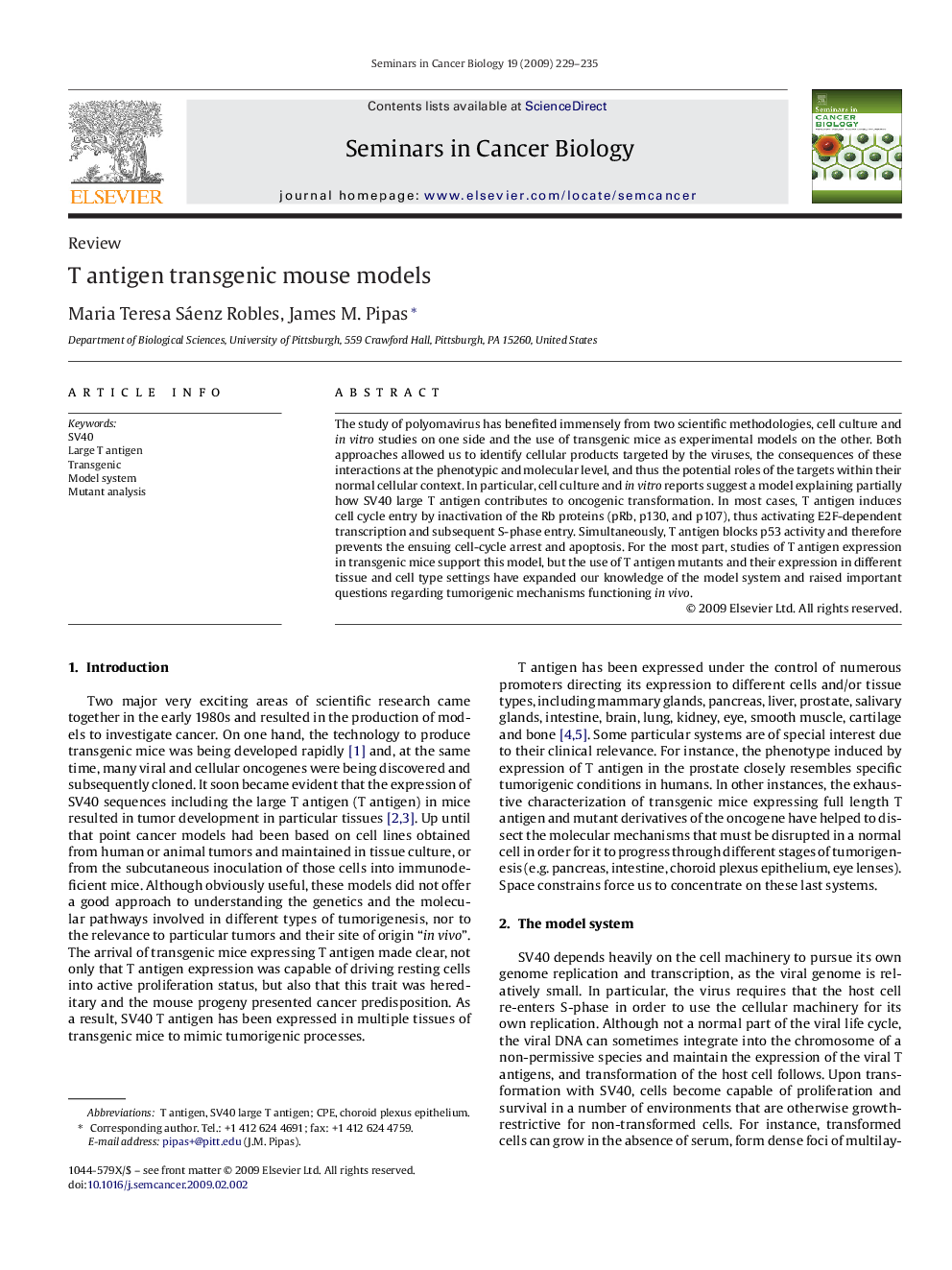| کد مقاله | کد نشریه | سال انتشار | مقاله انگلیسی | نسخه تمام متن |
|---|---|---|---|---|
| 2024027 | 1069841 | 2009 | 7 صفحه PDF | دانلود رایگان |

The study of polyomavirus has benefited immensely from two scientific methodologies, cell culture and in vitro studies on one side and the use of transgenic mice as experimental models on the other. Both approaches allowed us to identify cellular products targeted by the viruses, the consequences of these interactions at the phenotypic and molecular level, and thus the potential roles of the targets within their normal cellular context. In particular, cell culture and in vitro reports suggest a model explaining partially how SV40 large T antigen contributes to oncogenic transformation. In most cases, T antigen induces cell cycle entry by inactivation of the Rb proteins (pRb, p130, and p107), thus activating E2F-dependent transcription and subsequent S-phase entry. Simultaneously, T antigen blocks p53 activity and therefore prevents the ensuing cell-cycle arrest and apoptosis. For the most part, studies of T antigen expression in transgenic mice support this model, but the use of T antigen mutants and their expression in different tissue and cell type settings have expanded our knowledge of the model system and raised important questions regarding tumorigenic mechanisms functioning in vivo.
Journal: Seminars in Cancer Biology - Volume 19, Issue 4, August 2009, Pages 229–235